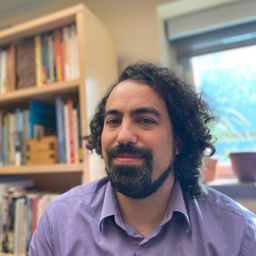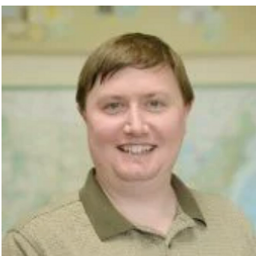
Francisco Rivera
Francisco Rivera is a historical archaeologist and received his Ph.D. in Anthropology at the University of Montreal (Canada). His research interests are the anthropology of mining, industrial heritage, the archaeology of the contemporary past, and the historical archaeology of capitalism both in the Atacama Desert (Chile) and Quebec's Lower North Shore (Canada). His long-term research combines archaeological, ethnographic, and historical approaches to study extractive capitalist activities that took place in areas peripheral to the world’s major industrial centers. He is the director of the Alto Cielo Archaeological Project, which explores the cultural history of Ollagüe, an indigenous community in northern Chile. He recently co-edited the book ‘El perfume del diablo: azufre, memoria y materialidades en el Alto Cielo (Ollagüe, s. XX)’ (RIL Editores, Santiago, 2020).
Documents
Sessions in which Francisco Rivera participates
Tuesday 30 August, 2022
Sessions in which Francisco Rivera attends
Sunday 28 August, 2022
Join the conference organisers and TICCIH board members for a welcome cocktail and some festive words of introduction, in the former forge of the École technique de Montréal, founded in 1909, now part of the Université du Québec à Montréal campus.
Monday 29 August, 2022
Si la vallée du canal de Lachine a été le berceau de l’industrialisation canadienne, la géographie industrielle métropolitaine ne s’y est pas confinée, peu s’en faut, Outre les grandes concentrations d’entreprises des quartiers centraux, elle est constituée des réseaux infrastructuraux, d’une douzaine de centrales hydroélectriques et des ensembles manufacturiers disséminés dans une quinzaine de petites villes aujourd’hui intégrées dans l’aire métropolitaine. La conférence proposera un surv...
Tuesday 30 August, 2022
Efforts to preserve industrial heritage occurs in a socio-economic and political context. But what is being preserved and for whom? And, relatedly, what is the relationship between industrial heritage sites and the deindustrialized working-class communities that often adjoin them? The keynote will consider the ways that the preservation of Montreal’s Lachine Canal, Canada’s premier industrial heritage site, has enabled gentrification processes that have forc...
Wednesday 31 August, 2022
In this lecture, I would like to talk about deindustrialised communities, heritage and memory in the context of right-wing populism. Drawing on studies of memory and heritage, I argue that right-wing populists have cornered the market on talking about the past of deindustrialised communities. They have successfully misrepresented this rich and complex history to fuel rage, resentment, fear and reactionary nostalgia. Indeed, ‘the past’, and in particular the industr...
Thursday 1 September, 2022
The use of industrial heritage is a profoundly important factor in the process of creating a sustainable economic, social, and political future for many communities occupying industrial heritage landscapes. More than ever we recognize the need for such communities to be capable of shaping and expressing their heritage in different forms in the context of current events and issues, and in doing so to inform both contemporary decision-making as well as the way their industrial heritage is re...
This lecture will argue that the landscapes of industrial heritage that can be found in different parts of the world are directly related to the place-specific trajectories of deindustrialization. In other words: the different ways in which deindustrialization impacts on local communities has a direct bearing on the emergence of forms of industrial heritage. I will differentialte between deindustrialization paths and related industrial heritage regimes in a) Anglo-...
Friday 2 September, 2022
In the refusal of people in communities abandoned by industrial capital to abandon their own places, we can read an implicit critique of the mobility and unaccountability of capital, raised by those who were once inside (however tenuously or uncomfortably) and now find themselves marginalized, “left behind.” The desire to catch up again, whether through attracting new investment or transvaluing abandoned sites as tourist attractions, makes this an essentially conservative critique that is ...
Come and share the good times of the congress and celebrate your scientific and professional discoveries in a former fruit jam factory, Usine C, built in 1913 and transformed at the end of the 1970s into a place for creation and dissemination.Discover Montreal's gastronomy thanks to an exceptional caterer. Learn about Montreal's musical heritage and the history of the industrial district that brought it to life. Then hear and experience Quebec's musical tradition as you are carried ...









